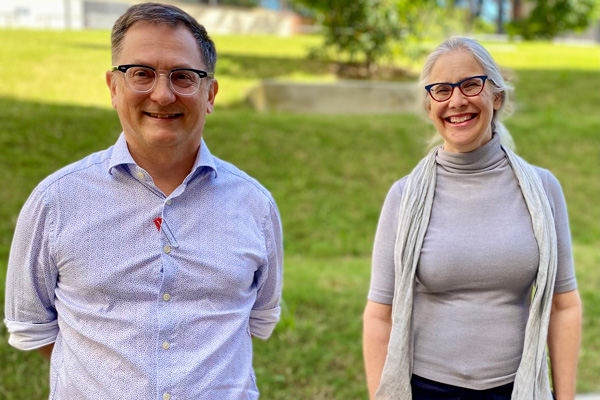Understanding benefits and burdens of colonoscopy in frail older people
A study observing the benefits and burdens of outpatient colonoscopy in older and frailer patients is being delivered by staff from gastroenterology departments at the Surgical, Treatment and Rehabilitation Service (STARS) and the Royal Brisbane and Women’s Hospital (RBWH).

Lead investigators Dr Mark Appleyard, STARS Director Gastroenterology (left), and Professor Alison Mudge, Metro North Clinician Research Fellow, Internal Medicine Research Unit RBWH (right)
STARS Gastroenterology Director Dr Mark Appleyard said that colonoscopy is one of the most common procedures performed on older Australians, with people aged over 50 years encouraged to undergo routine bowel screening, but there have been very few studies that examine the benefits and burdens of outpatient colonoscopy in older and frailer patients.
“Surveillance colonoscopies are an important procedure that helps detect the early signs of bowel cancer, but as a person gets older or frailer, the procedure itself may be more complicated or more unpleasant and their benefits in terms of extending life expectancy may get smaller,” Dr Appleyard said.
“This research will try to estimate these benefits and burdens for different groups of patients, so that we can provide more individualised advice to help clinicians and patients to decide whether the procedure is in the patient’s best interest.”
The study will use carefully collected clinical data from all participants undergoing surveillance colonoscopy aged 65 years and older to see whether age group and/or frailty helps to identify groups where burdens clearly outweigh benefits.
Dr Appleyard said the study would lead to the development and testing of a shared decision-making tool for older people choosing whether to undertake surveillance colonoscopy.
“This study will help to ensure that older patients and staff are choosing procedures wisely, guided by up-to-date local evidence, and ensure that access is safe, equitable and transparent,” Dr Appleyard said.
This research is supported by funding from the Queensland Health Value Based Health Care team in Healthcare Purchasing Strategy Unit.
